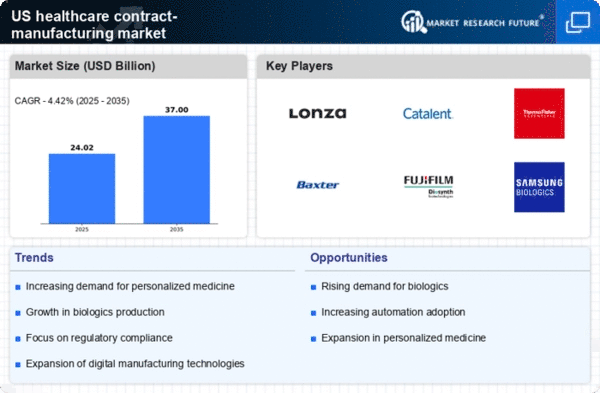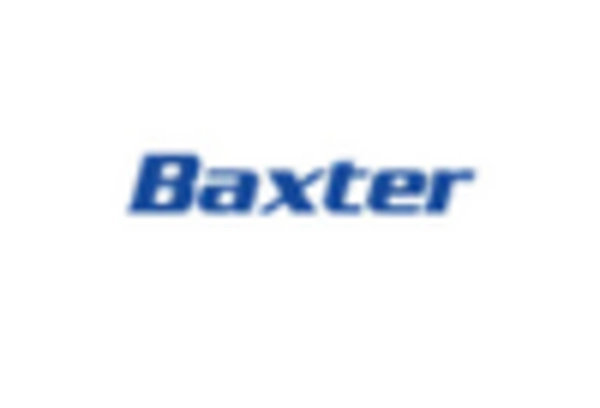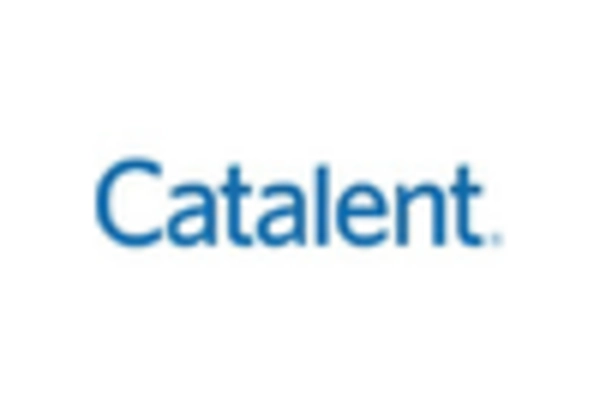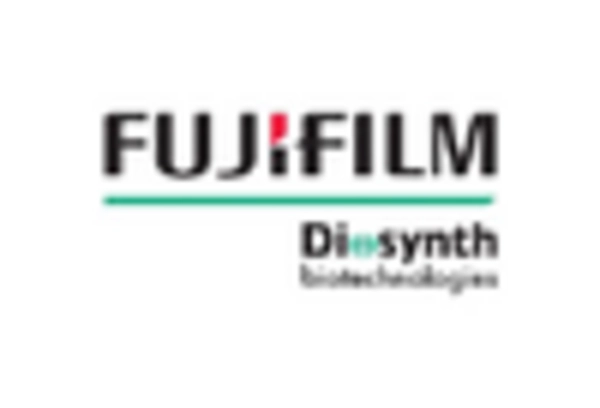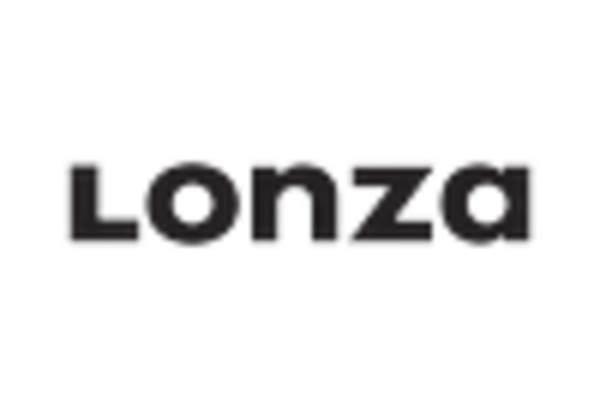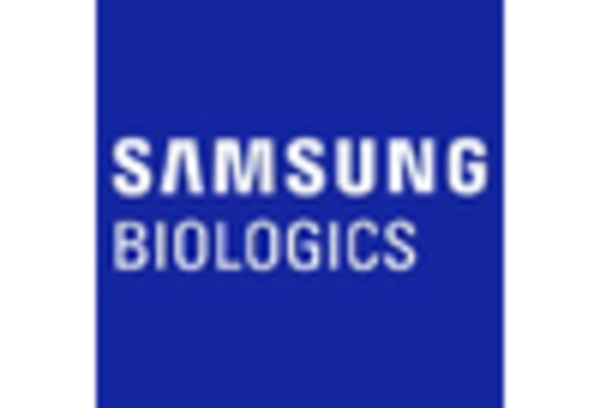Rising Regulatory Demands
The healthcare contract-manufacturing market is increasingly influenced by stringent regulatory requirements imposed by authorities such as the FDA. Compliance with these regulations is critical for ensuring product safety and efficacy, which in turn drives demand for specialized contract manufacturing services. Companies that can demonstrate adherence to Good Manufacturing Practices (GMP) are more likely to secure contracts, as healthcare providers prioritize quality assurance. The costs associated with regulatory compliance can be substantial, often reaching millions of dollars annually for manufacturers. As regulations continue to evolve, the healthcare contract-manufacturing market must adapt, creating opportunities for those who can navigate these complexities effectively.
Expansion of Biopharmaceuticals
The biopharmaceutical sector is witnessing rapid growth, which is significantly impacting the healthcare contract-manufacturing market. With the increasing prevalence of chronic diseases and the demand for innovative therapies, biopharmaceutical companies are turning to contract manufacturers to scale production efficiently. The biopharmaceutical market is projected to reach approximately $500 billion by 2025, which creates substantial opportunities for contract manufacturers. This expansion necessitates specialized manufacturing capabilities, which many contract manufacturers possess, thus positioning them as essential partners in the biopharmaceutical supply chain. As the biopharmaceutical landscape evolves, the healthcare contract-manufacturing market is poised to benefit from this upward trajectory.
Increasing Focus on Cost Efficiency
The healthcare contract-manufacturing market is experiencing a notable shift towards cost efficiency as healthcare providers seek to optimize their operational expenditures. By outsourcing manufacturing processes, companies can reduce overhead costs associated with maintaining in-house production facilities. This trend is underscored by a report indicating that outsourcing can lead to savings of up to 30% in manufacturing costs. As healthcare organizations face pressure to lower costs while maintaining quality, the demand for contract manufacturing services is likely to grow. This focus on cost efficiency not only enhances profitability but also allows healthcare providers to allocate resources more effectively, thereby driving the expansion of the healthcare contract-manufacturing market.
Growing Demand for Personalized Medicine
The trend towards personalized medicine is reshaping the healthcare contract-manufacturing market. As treatments become more tailored to individual patient needs, the demand for flexible manufacturing solutions is increasing. This shift requires contract manufacturers to adapt their processes to accommodate smaller batch sizes and diverse product specifications. The personalized medicine market is expected to grow significantly, potentially reaching $2 trillion by 2030, which will likely drive demand for specialized manufacturing capabilities. Consequently, contract manufacturers that can offer customized solutions are well-positioned to capitalize on this trend, thereby contributing to the expansion of the healthcare contract-manufacturing market.
Technological Integration in Manufacturing
The integration of advanced technologies such as automation, artificial intelligence, and data analytics is transforming the healthcare contract-manufacturing market. These technologies enhance production efficiency, reduce errors, and improve overall quality. For instance, the implementation of automation can lead to a reduction in production time by up to 25%, allowing manufacturers to meet increasing demand more effectively. Furthermore, data analytics enables manufacturers to optimize supply chain management and inventory control, which is crucial in a market characterized by fluctuating demand. As healthcare providers increasingly seek innovative solutions, the adoption of these technologies is likely to drive growth in the healthcare contract-manufacturing market.


